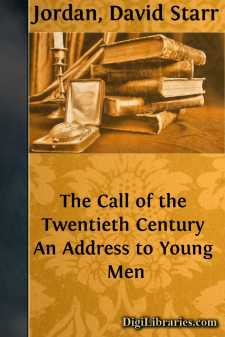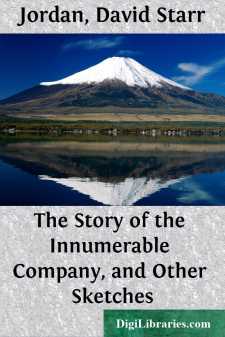Categories
- Antiques & Collectibles 13
- Architecture 36
- Art 48
- Bibles 22
- Biography & Autobiography 813
- Body, Mind & Spirit 142
- Business & Economics 28
- Children's Books 17
- Children's Fiction 14
- Computers 4
- Cooking 94
- Crafts & Hobbies 4
- Drama 346
- Education 46
- Family & Relationships 57
- Fiction 11829
- Games 19
- Gardening 17
- Health & Fitness 34
- History 1377
- House & Home 1
- Humor 147
- Juvenile Fiction 1873
- Juvenile Nonfiction 202
- Language Arts & Disciplines 88
- Law 16
- Literary Collections 686
- Literary Criticism 179
- Mathematics 13
- Medical 41
- Music 40
- Nature 179
- Non-Classifiable 1768
- Performing Arts 7
- Periodicals 1453
- Philosophy 64
- Photography 2
- Poetry 896
- Political Science 203
- Psychology 42
- Reference 154
- Religion 513
- Science 126
- Self-Help 84
- Social Science 81
- Sports & Recreation 34
- Study Aids 3
- Technology & Engineering 59
- Transportation 23
- Travel 463
- True Crime 29
The Call of the Twentieth Century An Address to Young Men
Description:
Excerpt
The new century has come upon us with a rush of energy that no century has shown before. Let us stand aside for a moment that we may see what kind of a century it is to be, what is the work it has to do, and what manner of men it will demand to do it.
In most regards one century is like another. Just as men are men, so times are times. In the Twentieth Century there will be the same joys, the same sorrows, the same marrying and giving in marriage, the same round of work and play, of wisdom and duty, of folly and distress which other centuries have seen. Just as each individual man has the same organs, the same passions, the same functions as all others, so it is with all the centuries. But we know men not by their likenesses, which are many, but by differences in emphasis, by individual traits which are slight and subtle, but all-important in determining our likes and dislikes, our friendships, loves, and hates. So with the centuries; we remember those which are past not by the mass of common traits in history and development, but by the few events or thoughts unnoticed at the time, but which stand out like mountain peaks raised "above oblivion's sea," when the times are all gathered in and the century begins to blend with the "infinite azure of the past." Not wars and conquests mark a century. The hosts grow small in the vanishing perspective, "the captains and the kings depart," but the thoughts of men, their attitude toward their environment, their struggles toward duty,—these are the things which endure.
Compared with the centuries that are past, the Twentieth Century in its broad outlines will be like the rest. It will be selfish, generous, careless, devoted, fatuous, efficient. But three of its traits must stand out above all others, each raised to a higher degree than any other century has known. The Twentieth Century above all others will be strenuous, complex, and democratic. Strenuous the century must be, of course. This we can all see, and we have to thank the young man of the Twentieth Century who gave us the watchword of "the strenuous life," and who has raised the apt phrase to the dignity of a national purpose. Our century has a host of things to do, bold things, noble things, tedious things, difficult things, enduring things. It has only a hundred years to do them in, and two of these years are gone already. We must be up and bestir ourselves. If we are called to help in this work, there is no time for an idle minute. Idle men and idle women no doubt will cumber our way, for there are many who have never heard of the work to do, many who will never know that there has been a new century. These the century will pass by with the gentle tolerance she shows to clams and squirrels, but on those of us she calls to her service she will lay heavy burdens of duty. "The color of life is red." Already the fad of the drooping spirit, the end-of-the-century pose, has given way to the rush of the strenuous life, to the feeling that struggle brings its own reward. The men who are doing ask no favor at the end. Life is repaid by the joy of living it.
As the century is strenuous so will it be complex. The applications of science have made the great world small, while every part of it has grown insistent....







